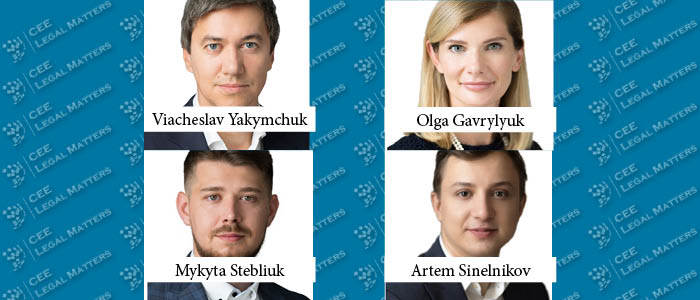On 19 September 2023, the Cabinet of Ministers of Ukraine and the National Bank of Ukraine adopted Regulation No. 1011, introducing a comprehensive methodology ("Methodology") to identify the ultimate beneficial owners (UBOs) of legal entities in Ukraine. This significant development aims to enhance transparency and provide detailed guidance on the process of identifying UBOs, with the ultimate goal of ensuring that legal entities in Ukraine are able to correctly identify UBOs within their ownership structure and disclose this information to the competent authorities.
Key highlights
- Streamlined UBO identification: The primary goal of the Methodology is to simplify the identification of UBOs by establishing a uniform and consistent approach, criteria and methods for assessing the presence of a UBO within a corporate structure.
- Access to accurate information: The Methodology aims to ensure that competent authorities have access to adequate, up-to-date and accurate information on UBOs.
- Alignment with international standards: The development of this Methodology is in line with the guidance provided by the Financial Action Task Force (FATF) in its "Guidance on Beneficial Ownership of Legal Persons" published in March 2022.
Key provisions:
- Comprehensive UBO identification process: The Methodology lays out a structured process for identifying UBOs. This involves investigating ownership relations to identify the characteristics of direct or indirect control over an entity, establishing a list of persons who directly or indirectly exercise such control, and gathering documentary confirmation of the respective control and ownership relations. If there are no clear signs of control, or if doubts persist about the UBO, the focus of the investigation should shift to examining individuals holding positions in the entity's management or those performing a single executive function.
- Principles of UBO disclosure: The Methodology establishes various principles that should be considered when investigating the characteristics and determining the UBO. This includes the need to avoid a formal approach to determining the UBO (e.g., by way of direct ownership only), and apply a flexible and practical approach to UBO analysis.
- Research methods and documentation: Specific research methods and document requirements are detailed for identifying UBOs in cases of both direct and indirect influence, offering clear guidelines on assessing the UBO status of any individual.
- Indicators of indirect influence: The Methodology provides specific indicators to determine indirect influence through control rights. These include, among other things, the ability to issue binding instructions to entity management, negotiating significant transactions without further approval, holding a power of attorney issued for more than a year for significant transactions, or managing bank accounts.
- Control relationships among entities: Where one person (legal or individual) exercises control over another, the Methodology outlines a process to identify the main controlling person within a chain of control (i.e., a person that is not controlled by anyone else).
- Specific guidelines for different types of entities: The Methodology also provides detailed instructions on identifying UBOs for several specific types of legal entities, such as non-profit organisations, corporate and mutual investment funds, general and limited partnerships, and limited liability partnerships.
In conclusion, the introduction of the Methodology marks a significant step forward in Ukraine's efforts to combat financial crime, promote transparency and align its UBO disclosure procedures with international standards. Businesses and organisations operating in Ukraine should carefully review these new regulations and integrate them into their compliance and governance processes to ensure compliance with these evolving requirements.
Actions to consider
While Ukrainian legal entities are generally not required to perform UBO disclosure and updates during the martial law period, this will change once the martial law period ends. Therefore, we recommend revising your entity's ownership structure and UBO status to align it with the Methodology before the deadline established by Ukrainian law. Such a proactive approach will help to avoid the rush and time-related complications related to completing the UBO disclosure after the end of the martial law period, and will mitigate any issues with service providers that require the completion of financial monitoring and know-your-client procedures (such as banks, insurance companies, auditors, etc.)
By Viacheslav Yakymchuk, Managing Partner, Olga Gavrylyuk, Counsel, Mykyta Stebliuk, Associate, and Artem Sinelnikov, Junior Associate, Baker McKenzie




